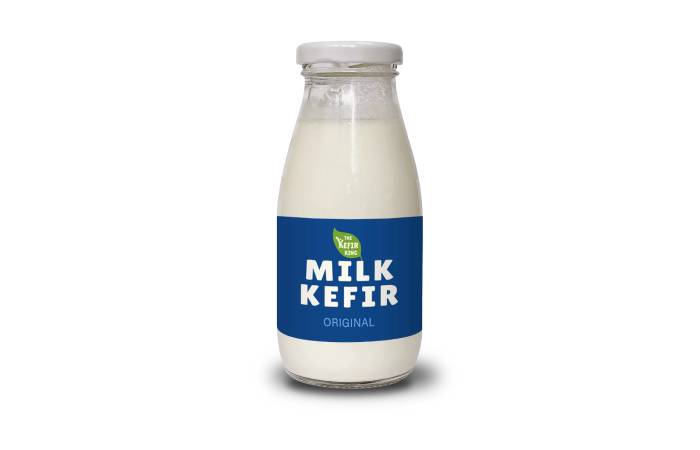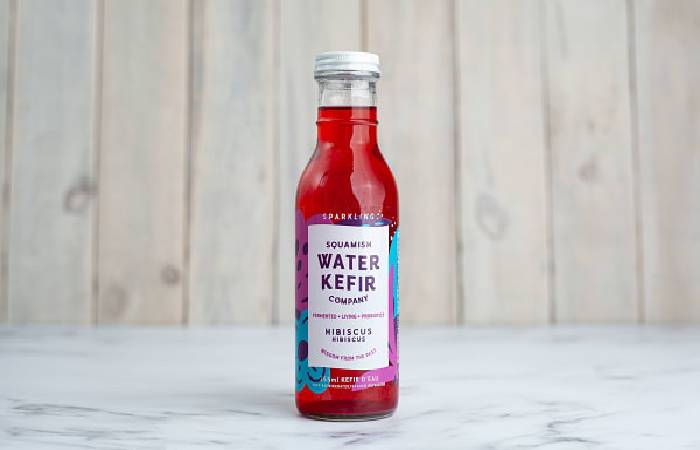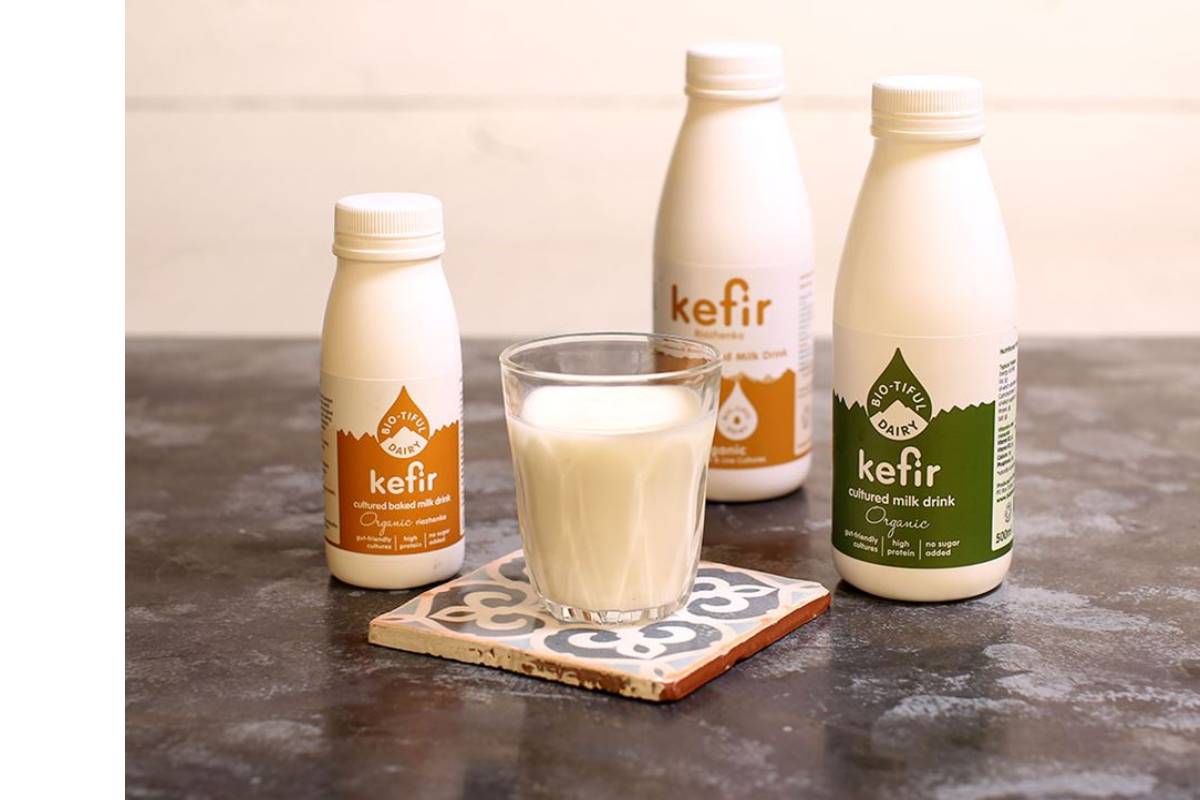Table of Contents
Kefir Definition
Kefir ferment with milk rich in bacteria and probiotic yeasts. It improves the intestinal flora, aid in immunity, and intestinal transit.
It is known as Bulgarian yogurt, bird yogurt, Kefir, or Bulgarian milk. It helps to maintain the general health of the organism.
It bacteria can be safely grown at home. The production of the drink is smooth and resembles the output of plain yogurt.
In reality, water and milk kefir contain the same bacteria and yeasts but adapted to different media.
There are also distinctions regarding the enzymes present in one and the other.
What are the Benefits of Kefir?

Because it is a probiotic food, the main Benefits of Kefir are:
Reduce Constipation: Since good bacteria improve digestion and accelerate intestinal transit;
Fight Intestinal Inflammation: Because having a healthy flora is the main factor to avoid diseases;
Facilitate Digestion ;
Lose Weight: Because it is rich in protein and low in calories;
Fight Osteoporosis: As it is rich in calcium;
Prevent and Combat Gastritis: Especially gastritis caused by H. pylori bacteria;
Strengthen the Immune System: It is excellent for those who undergo antibiotic treatments and need to regulate intestinal transit.
What are the Uses of Kefir to Lose Weight?

- Kefir is a low-calorie food since 100 g has only 37 calories. We are making it an excellent option to use in weight loss diets.
- It can use to replace milk or yogurt, which is an excellent option for those who suffer from constipation.
- You can consume it once a day, at breakfast, or as a snack, for example.
- To make the flavor more pleasant. You can sweeten it with a little honey or add fruits, in the form of a smoothie.
- It helps to loosen the stomach, so it evacuates more regularly.
- It is possible to notice that the belly is less swollen in the first week. But for the weight loss to be lasting.
- You should follow a diet to lose weight and practice exercises regularly. See more recipes to end constipation.
Where to Buy Kefir?
It is possible to buy kefir grains online, and kefir milk can purchase in some supermarkets or health food stores.
However, donations between friends or online sites are widespread because the grains are grown in liquid environments.
So they multiply, and a portion must remove to prevent excessive growth, for this reason—those who have a home offer to family and friends.
It grains originated in Caucasian, being an ancient drink and made up of different microorganisms. It is useful for regulating intestine.
How to Make Kefir?
1. Milk Kefir

The preparation of Kefir is straightforward, being similar to the domestic production of natural yogurt:
Ingredients
- 100 g of Kefir;
- 1 ltr of cow’s or goat’s milk.
Preparation
- Place the kefir grains, fresh milk, pasteurized or not, skim, semi-skim or complete, in a glass container.
- The content lives at room temperature for approximately 24 hours.
- The fermented milk must strain to separate and recover the grains that add to more fresh juice, repeating the process.
- The fermented and strained liquid can be consumed immediately or can keep in the refrigerator for later consumption.
2.Water Kefir

The difference between water kefir and milk kefir is that it does not need lactose for fermentation to take place.
It does through the addition of sugar or brown sugar, so those who are vegetarian and lactose intolerant.
Ingredients
- 100 g of Kefir;
- 60 g brown or brown sugar;
- 1 ltr of water.
Preparation
- Put the water in a glass container. If you want to give it a better flavor, you can squeeze half a lemon, add the kefir grains and sugar.
- Next, you should cover the bottle with a cloth and an elastic band and shake it. I am keeping it at room temperature for 2 to 3 days.
- It must then be strained and can then be drunk or stored in the fridge.
Flavoring the Water Kefir
- After fermentation, the water kefir can mix with fruit juices, teas, ginger, and dried fruit for flavor.
- Fermentation makes the drink slightly carbonated, making it possible to flavor the taste to create a “homemade soft drink.
- The water kefir lasts from 3 days to 1 week in the refrigerator.
- It can consume as snacks or as a companion to lunch or dinner.
- Another option of the fermented drink to accompany meals and improve health is Kombucha.
How to Store Kefir?
To keep it always healthy and productive. It should store in a container with milk or sugar water after each fermentation. It remembers that metal materials should not use.
The container should be well covered with cheesecloth or kitchen paper. It does not come into contact with flies or ants.
On hotter days or to delay the fermentation process, it can store in the refrigerator.
But if you want to go more days without using it for fermentation. The grains should be stored in a covered container and frozen.
Little by little, it grows with the fermentations and creates a rubber or thicker liquid.
It is necessary to wash the grains in water at least once a week.
It is possible to keep part of the grains in the freezer always to have a reserve. What can be donated so that other people can make it at home?
It remembers that the grains of milk kefir must separate from the grains of water kefir.
Is it Possible to Use Milk to Prepare Water kefir?
- If possible, however, the process is not so easy and may not be successful.
- So the ideal is not to use all the grains of milk kefir but only a part of them.
- Firstly, the milk kefir must be active; rehydrate them before turning them into water kefir.
- Next, you need to follow the steps mentioned below:
- Dissolve ¼ cup of raw sugar in 1 liter of water and add ⅛ teaspoon of unrefined sea salt;
- And also add the active milk grains to the water and sugar solution. It left them to ferment for five days at room temperature;
- Remove it grains, prepare sugar water again, and place them in this new solution.
- It leaves them to ferment at room temperature for 12 to 24 hours less than the previous batch;
- And also the previous step should repeat, and the preparation time decreases by 12 to 24 hours between each batch.
- Until the cultivation, the period is 48 hours or less.
- At this point, the grains have turned into water kefir grains and must continue to grow for 24 to 48 hours per batch.
Contraindications and Side Effects of Kefir
- Kefir contraindicate in cases of gastrointestinal cancer.
- We should not intake it before and after2 hours of medications.
- And also such as bisphosphonate, fluorides, or tetracyclines.
- It avoids interfering with the absorption of the drug. The fermentation of it causes a small production of alcohol.
- It can be harmful to people with liver disease.
- Ingesting too much it can cause abdominal pain and diarrhea, so no more than one glass (240 mL) of it. It should consume per day.

